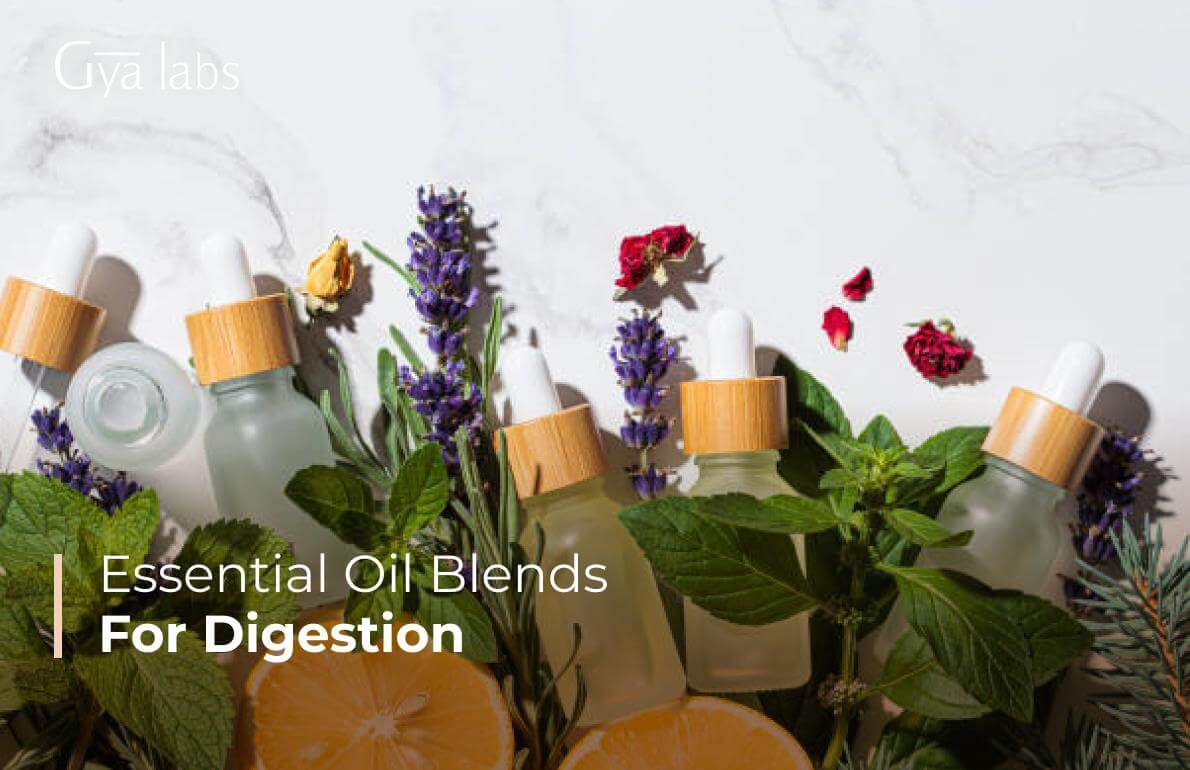In the search for effective hair loss solutions and to pursue hair growth, rosemary essential oil and minoxidil have emerged as top game changers.
Rosemary Oil is a natural remedy extracted from the aromatic herb rosemary, has been lauded for its potential in stimulating hair growth and improving scalp health. It's a remedy steeped in tradition, with a reputation for an increase in hair volume and length.
On the other hand, we have Minoxidil, which is a medically approved treatment for hair loss, renowned for its efficacy in promoting hair regrowth. Originally developed as a medication for high blood pressure, its unexpected side effect of hair growth has made it a cornerstone in the fight against baldness.
According to one study, in an article published by the Skinmed magazine, 13(1), Rosemary oil and 2% minoxidil are some of the most effective treatments to help treat hair loss and also help in hair regrowth and resist the factors that cause hair loss [1].
In this article learn about Rosemary Oil and Minoxidil. Also learn about its origin, uses and DIY Recipes for hair care and growth.
Origins and Initial Uses: Minoxidil and Rosemary Oil
|
Rosemary Essential Oil |
Minoxidil |
|
|
Origins |
Rosemary Oil is derived from the Rosemary plant. It is a perennial herb with fragrant, evergreen, needle-like leaves which is native to the Mediterranean region. The use of Rosemary for medicinal and therapeutic purposes dates back to ancient civilizations, including the Greeks, Romans, and Egyptians. |
Minoxidil was initially developed in the late 1950s as a medication to treat ulcers, but it was later discovered to have vasodilatory properties. It was then reformulated into a drug named Loniten to treat high blood pressure. |
|
Early Uses |
Over the centuries, the extraction and utilization of Rosemary Oil have evolved, with advancements in distillation techniques leading to higher purity and potency. The oil has been a staple in herbal medicine, aromatherapy, and culinary applications. |
The journey of Minoxidil as a hair growth treatment began when patients taking Loniten reported unexpected hair growth as a side effect. This led to further research and development, culminating in the FDA approval of topical Minoxidil as a hair loss treatment in the 1980s. |
Rosemary Oil vs. Minoxidil
Natural vs. Chemical
Rosemary Oil: Rosemary oil, derived from the herb Rosmarinus officinalis, has a long history of traditional use in hair care. Known for its natural properties, it boasts antioxidants that help protect hair follicles and reduce inflammation.
Minoxidil: Minoxidil, on the other hand, is a topical medication approved by the FDA for treating hair loss. While it is effective, it comes with potential side effects due to its chemical nature.
Scientific Evidence
Rosemary Oil: Studies support the hair-stimulating effects of rosemary oil. Research published in "Skinmed" revealed that using rosemary oil for six months significantly increased hair count and thickness.
Minoxidil: Minoxidil has a more extensive history of scientific research and FDA approval, showcasing its effectiveness in promoting hair growth. Its status as a pharmaceutical drug means it has benefited from substantial research funding.
Fun Fact: Minoxidil was originally developed as a blood pressure medication, which explains why its use can carry side effects.
Ease of Use
Rosemary Oil: Rosemary oil is straightforward to use. Simply mix a few drops with a carrier oil, massage it into your scalp, and leave it on for a few hours or overnight.
Minoxidil: Minoxidil is available in topical solutions or foams that need to be applied daily. While effective, it demands a higher level of commitment.
Now, let's learn in detail how rosemary oil and minoxidil works for hair growth and help prevent hair loss.
How Rosemary Oil and Minoxidil Work For Hair Growth
Rosemary Oil
Rosemary Oil is believed to promote hair growth by improving blood flow to the scalp. Enhanced circulation ensures that hair follicles receive an adequate supply of nutrients and oxygen, essential for healthy hair growth.
-
Rosemary Oil is known for its anti-microbial properties, which can help in maintaining a healthy scalp environment, thereby potentially reducing hair loss caused by inflammatory conditions or infections.
-
Some studies suggest that Rosemary Oil may also inhibit the action of Dihydrotestosterone (DHT), a hormone linked to hair loss.
According to an article published by the Scientific African Magazine, Vol 16, July 2022, Rosemary and Cedarwood Essential oils have shown potential for enhancing hair volume and hair growth promoting properties [2].
Minoxidil
Minoxidil is a vasodilator, meaning it widens the blood vessels, thereby increasing blood flow to the hair follicles. This increased blood flow delivers more nutrients and oxygen to the hair follicles, promoting healthier hair and scalp.
According to an article published in the British Journal of Dermatology, Minoxidil is known to stimulate hair growth and inhibit collagen synthesis in the hair follicle [3].
-
Minoxidil also extends the anagen phase of the hair growth cycle, which is the active growth phase, and revitalizes shrunken hair follicles, increasing their size.
-
The exact molecular mechanism of how Minoxidil promotes hair growth is still not fully understood, but its ability to enhance blood flow and stimulate hair follicles has been well-documented.
-
Minoxidil has proven to be an effective treatment for hair loss, with numerous studies and clinical trials attesting to its efficacy in promoting hair regrowth.
Comparison between Rosemary Oil vs Minoxidil for Hair Loss Treatment
|
Rosemary Essential Oil |
Minoxidil |
|
Rosemary Essential Oil is known to possess antimicrobial activities and can inhibit DHT. |
It is known to increase the blood flow to the hair follicles and can extend the anagen phase of hair growth. |
|
Topical application of the oil to the scalp. |
Topical solution or foam of the applied scalp. |
|
It is generally mild, it may cause scalp irritation and allergic reactions for a few individuals. |
Potential side effects include scalp irritation, unwanted hair growth in adjacent areas. |
|
Widely available in various forms such as essential oils and infused hair care products. |
Available over the counter in various strengths and formulations. |
|
Generally less expensive than Minoxidil. |
Can be more expensive, depending on the brand and formulation. |
DIY Hair Care Recipes using Rosemary Oil for Hair
Recipe #1 - Rosemary Oil Scalp Massage and Hair Growth Serum
Ingredients:
-
10 drops of Rosemary Essential Oil
-
2 tablespoons of Jojoba Oil (or any carrier oil like coconut or olive oil)
-
Small glass dropper bottle
Instructions:
-
Mix & Shake: Combine the rosemary essential oil with the jojoba oil in the glass dropper bottle. Shake well to mix.
-
Apply & Massage: Apply a few drops directly to the scalp and massage gently for a few minutes, focusing on areas of concern.
-
Leave-In: Leave the oil in for at least 30 minutes or overnight for best results.
-
Rinse: Wash your hair thoroughly with a mild shampoo.
Benefits:
This serum promotes hair growth by stimulating blood circulation to the scalp and nourishing the hair follicles. The antioxidants in rosemary oil help to protect the scalp from damage and reduce inflammation, while jojoba oil moisturizes and balances the scalp’s natural oils.
Recipe #2 - Rosemary Oil Hair Rinse for Shine and Dandruff Control
Ingredients:
-
5 drops of Rosemary Essential Oil
-
1 cup of Apple Cider Vinegar
-
2 cups of Water
Instructions:
-
Mix Ingredients: In a jug, mix rosemary essential oil, apple cider vinegar, and water.
-
Shampoo & Rinse: Shampoo your hair as usual and then pour the rosemary mixture over your hair as a final rinse.
-
Leave-In: Do not rinse it out with water. Let your hair dry naturally.
Benefits:
This hair rinse helps to control dandruff and adds shine to the hair. Apple cider vinegar balances the scalp's pH and removes buildup, while rosemary oil provides antimicrobial properties to keep the scalp healthy and free from flakes.
Recipe #3 - Rosemary Oil and Coconut Oil Hair Mask for Deep Conditioning
Ingredients:
-
10 drops of Rosemary Essential Oil
-
2 tablespoons of Coconut Oil
-
1 tablespoon of Honey (optional)
Instructions:
-
Prepare the Mask: Melt the coconut oil and mix it with the rosemary essential oil (and honey if you are using it) in a bowl.
-
Apply to Hair: Apply the mixture to your hair, focusing on the ends and avoiding the roots.
-
Cover & Wait: Cover your hair with a shower cap and wait for at least 30 minutes.
-
Wash Off: Rinse off the mask with warm water and shampoo your hair as usual.
Benefits:
This deep conditioning mask hydrates and strengthens the hair. Coconut oil penetrates the hair shaft to provide deep moisture, rosemary oil stimulates hair growth and improves scalp health, and honey adds additional hydration and shine.
Hair Care Routine Using Minoxidil
1. Minoxidil with Regular Shampoo Routine
Instructions:
-
Apply Minoxidil: Start by applying Minoxidil to the scalp, particularly in areas of thinning, as per the product’s instructions.
-
Wait: Allow the solution to be absorbed by the scalp for the time recommended on the packaging (usually it is advised to leave it on for at least 4 hours).
-
Shampoo: After the waiting period, proceed with your regular shampoo routine.
Benefits:
Minoxidil promotes hair growth by extending the anagen phase of the hair growth cycle. Regular use can help to increase hair density and reduce hair thinning.
2. Minoxidil with Deep Conditioning Treatment
Instructions:
-
Apply Minoxidil: Apply Minoxidil to the scalp according to the instructions.
-
Wait: Let the solution absorb for the recommended time.
-
Deep Condition: After the waiting period, apply a deep conditioning hair mask or oil to the lengths and ends of your hair, avoiding the scalp.
-
Rinse: Rinse off the conditioner with warm water and shampoo if necessary.
Benefits:
Combining Minoxidil with a deep conditioning treatment ensures that the scalp receives the medication while the hair strands get the moisture and nourishment they need, leading to healthier, stronger hair.
3. Minoxidil with Scalp Massage
Instructions:
-
Apply Minoxidil: Administer Minoxidil to the scalp as directed.
-
Scalp Massage: While waiting for the solution to absorb, gently massage the areas around the application site (not the site itself to avoid spreading the medication) to promote blood circulation.
-
Rinse: Proceed with your regular hair washing routine after the recommended waiting period.
Benefits:
A scalp massage helps to enhance blood flow to the hair follicles, which can improve the effectiveness of Minoxidil and promote healthier hair growth.
Benefits of Rosemary Oil
The following are the benefits of using rosemary oil in your hair care routine:
1. Promotes Hair Growth
Rosemary Oil is a popular choice for those looking to thicken their hair. It stimulates the scalp, improves blood circulation, and encourages hair growth. If you’re dreaming of more luscious locks, this oil might just be your new best friend!
2. Fights Dandruff
Say goodbye to those pesky white flakes! Rosemary Oil has antifungal properties that help combat dandruff. A few drops mixed with your shampoo, and you’re on your way to a healthier scalp.
3. Alleviates Muscle Pain
After a long day or a tough workout, Rosemary Oil can be a savior for sore muscles. Its anti-inflammatory properties help soothe muscle aches and pains when used in massages.
4. Uplifts Mood
Feeling down? The aromatic scent of Rosemary Oil is known to uplift spirits. Diffusing the oil or applying it topically can help alleviate stress and improve mood.
5. Natural Deodorizer
Rosemary Oil’s fresh and herbaceous scent makes it a great natural deodorizer. Whether diffused in the air or applied to the skin, it helps keep things smelling fresh and clean.
6. Repels Insects
Tired of bug bites? Rosemary Oil acts as a natural insect repellent. A few drops can help keep those annoying pests at bay.
Benefits of Minoxidil
The following are the benefits of Minoxidil:
1. Promotes Hair Regrowth
Minoxidil is renowned for its ability to stimulate hair follicles and promote hair regrowth. It’s a go-to solution for individuals experiencing hair thinning or balding, helping them regain confidence with fuller hair.
2. Slows Hair Loss
Not only does Minoxidil encourage new growth, but it also plays a crucial role in slowing the progression of hair loss. Regular application can help maintain the current hair density and delay further thinning.
3. Revitalizes Hair Follicles
Minoxidil works by increasing blood flow to the hair follicles, revitalizing shrunken follicles, and increasing their size. This process helps extend the growth phase of the hair cycle, leading to thicker and longer hair strands.
4. Over-the-Counter Availability
One of the conveniences of Minoxidil is its availability. It can be purchased over the counter, making it accessible for those seeking a remedy for hair loss without needing a prescription.
5. Variety of Formulations
Minoxidil comes in various formulations, including topical solutions and foams, catering to individual preferences and needs. This variety allows users to choose a product that suits their lifestyle and hair care routine.
6. Clinically Proven
Minoxidil has undergone extensive clinical trials and research, proving its efficacy in promoting hair growth and slowing hair loss. Its well-documented results make it a reliable choice for hair loss treatment.
Side Effects of Rosemary Essential Oil
The following are some common side effects of rosemary oil:
1. Allergic Reactions
Some people may experience allergic reactions to Rosemary Oil, such as skin rash, itching, redness, or hives. It is always advisable to perform a patch test before using it extensively before incorporating it into your hair loss treatment regimen.
2. Skin Irritation:
When applied directly to the skin, Rosemary Oil can cause irritation in some individuals, leading to redness, burning, or dryness. Diluting the oil with a carrier oil can help minimize this risk.
3. Photosensitivity:
Rosemary Oil can make the skin more sensitive to sunlight, increasing the risk of sunburn. It’s advisable to use sunscreen and limit sun exposure when using products containing Rosemary Oil on the skin.
4. Ingestion Risks:
Ingesting Rosemary Oil can be harmful and lead to vomiting, uterine bleeding, kidney irritation, increased sun sensitivity, skin redness, and allergic reactions.
Side Effects of Minoxidil
Minoxidil is a well known and a widely used treatment for hair loss but can cause side effects in some people if not used correctly:
1. Skin Irritation
Some users may experience redness, itching, dryness, or flakiness at the application site. If these symptoms persist or worsen, it’s advisable to discontinue use and consult a healthcare professional.
2. Unwanted Hair Growth
Minoxidil can sometimes cause unwanted hair growth in areas adjacent to the application site, such as the forehead or face.
3. Dizziness or Light-headedness
Some people may experience dizziness or light-headedness due to a decrease in blood pressure, as Minoxidil is a vasodilator.
4. Allergic Reactions
Allergic reactions to Minoxidil are rare but can occur, resulting in symptoms such as rash, itching, swelling, severe dizziness, or trouble breathing.
Precautions while using Rosemary and Minoxidil
-
Always perform a patch test before using Rosemary Oil to ensure you do not have an allergic reaction.
-
Dilute Rosemary Oil with a carrier oil before applying it to the skin to minimize the risk of irritation.
-
Rosemary Oil can increase sensitivity to sunlight. Use sunscreen and limit sun exposure when using products containing Rosemary Oil on the skin.
-
Do not ingest Rosemary Oil unless under the guidance of a healthcare professional, as it can be toxic.
-
Use Minoxidil strictly according to the manufacturer’s instructions or as directed by a healthcare professional.
-
Avoid contact with the eyes, nose, and mouth. If the medication gets into these areas, rinse thoroughly with water.
-
Do not use Minoxidil on irritated or sunburned scalp to avoid further irritation.
Conclusion
The journey of choosing between Minoxidil and Rosemary Oil for hair growth is a personal one, rooted in individual needs, preferences, and experiences. Rosemary Oil, with its natural origin and multifaceted benefits, offers a holistic approach to hair care. It not only promotes hair growth but also addresses scalp health, dandruff, and overall well-being with its aromatic and therapeutic properties.
Whereas, Minoxidil stands as a medically approved, scientifically backed solution specifically designed to combat hair loss and stimulate regrowth. Its widespread availability, variety of formulations, and proven efficacy make it a reliable choice for those dealing with pattern baldness or significant hair thinning.
While both have their merits, it’s essential to consider potential side effects and individual health conditions. A patch test for Rosemary Oil and adherence to guidelines for Minoxidil are crucial steps in ensuring a positive experience. Additionally, consulting with a healthcare professional or a dermatologist can provide personalized advice and address any concerns or questions.
Ultimately, whether you lean towards the herbal allure of Rosemary Oil or the clinical assurance of Minoxidil, both options open doors to renewed confidence and the joy of healthier, fuller hair. Balancing expectations, staying informed, and being patient are key components in navigating this journey towards revitalized hair growth.















